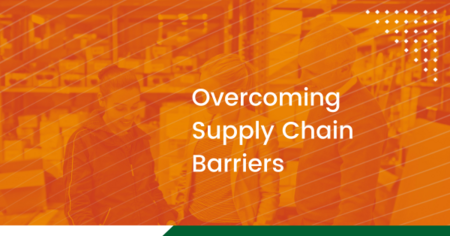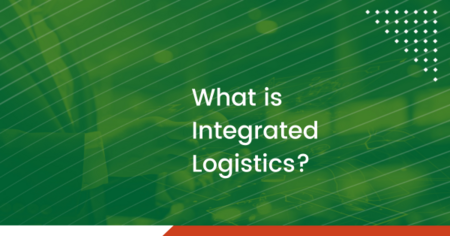by A2B Cargo Admin | Jul 14, 2023 | Community
MD United
Cargo & Freight, Transportation Services, Trucking Company, CDL Class A Drivers, Dispatch & Safety Team
https://mdunited.com/
The post Severe Weather Wreaks Havoc in Chicago appeared first on A2B Cargo.
MD United
Cargo & Freight, Transportation Services, Trucking Company, CDL Class A Drivers, Dispatch & Safety Team
https://mdunited.com/
by A and P Trucking | Jul 12, 2023 | Community
MD United
Cargo & Freight, Transportation Services, Trucking Company, CDL Class A Drivers, Dispatch & Safety Team
https://mdunited.com/
Meet the Team: April
A&P Trucking is a family focused company, and each of our team members is a part of our amazing family. We always strive to provide the best freight services to our clients, but we can’t do that without a great team to get the job done efficiently and safely. Join us in officially welcoming a member of the A&P Trucking family, April!
About April
April has worked hard helping manage the financial side of A&P trucking and offered many solutions to expand its growth. She cares about the wellbeing of not only the company but also the members and contractors that make it up. April assists with the management of our fleets across our partner companies and is always researching and looking for new partner companies to expand and grow with new opportunities.
Want to join our trucking family?
We are currently hiring new contract drivers with a minimum of 3 years driving experience and a good driving record!
The post Meet the Team: April appeared first on A and P Trucking.
MD United
Cargo & Freight, Transportation Services, Trucking Company, CDL Class A Drivers, Dispatch & Safety Team
https://mdunited.com/
by webdev | Jul 11, 2023 | Community
MD United
Cargo & Freight, Transportation Services, Trucking Company, CDL Class A Drivers, Dispatch & Safety Team
https://mdunited.com/
Flatbed shipping can be complex and challenging, requiring careful planning, coordination, and execution. For many businesses, working with a third-party logistics (3PL) provider can be an effective way to streamline their flatbed shipping operations and achieve greater efficiency and cost savings.
In this blog post, we’ll discuss how flatbed shippers can benefit from using a 3PL.
Access to a Large Network of Carriers
One of the most significant advantages of working with a 3PL for flatbed shipping is access to an extensive network of carriers. A good 3PL will have relationships with many pages, including flatbed carriers, that can provide the necessary equipment and expertise to handle even the most complex shipping requirements.
This means that shippers can avoid the hassle of searching for carriers themselves, negotiating rates, and managing the logistics of each shipment. Instead, they can rely on their 3PL to manage the entire process, from finding the right carrier to ensuring timely delivery.
Expertise and Knowledge of Industry Regulations
Another benefit of working with a 3PL for flatbed shipping is their expertise and knowledge of industry regulations. Flatbed shipping can be subject to a range of regulations and requirements, depending on the cargo’s nature and destination.
A good 3PL will have extensive experience working with flatbed carriers and be familiar with all relevant regulations and requirements. This means they can help shippers navigate the complex regulatory landscape and ensure all necessary permits and paperwork are in order.
Reduced Shipping Costs
Working with a 3PL for flatbed shipping can also save significant costs. Because 3PLs have access to an extensive network of carriers, they can often negotiate better rates than shippers can obtain independently.
In addition, 3PLs can help shippers optimize their shipping operations to reduce costs. For example, they can help shippers identify opportunities to consolidate shipments, optimize routing, and minimize empty miles, which can help reduce transportation costs.
Improved Visibility and Tracking
Another benefit of working with a 3PL for flatbed shipping is improved visibility and tracking. 3PLs typically have sophisticated tracking systems that allow shippers to monitor their shipments in real time, from pickup to delivery.
This level of visibility can be precious for flatbed shippers, who often deal with larger, more complex shipments that require more detailed tracking and monitoring. With a 3PL, shippers can have peace of mind knowing they have complete visibility and control over their shipments.
Streamlined Shipping Operations
Working with a 3PL for flatbed shipping can help streamline shipping operations and reduce administrative burdens. By outsourcing their shipping operations to a 3PL, shippers can free up valuable time and resources that can be better spent on core business activities.
In addition, 3PLs can handle many administrative tasks associated with flatbed shipping, such as billing and invoicing, leaving shippers with one less thing to worry about.
Partner With PLS Logistics
Flatbed shipping can be complex and challenging, but working with a 3PL can help streamline operations, reduce costs, and improve efficiency. With access to a large network of carriers, expertise in industry regulations, reduced shipping costs, improved visibility, and tracking, and streamlined operations, shippers can enjoy a range of benefits by partnering with a 3PL for their flatbed shipping needs.
Partnering with PLS Logistics gives you access to our carrier network of over 55,000 regional and national carriers and our TMS, PLS PRO. PLS PRO enables companies to optimize their loads by highlighting the carrier terminal’s availability, origin, and destination. In addition, it provides accurate rates, along with the carrier’s contact information. It allows businesses to select a suitable carrier for their budget! So contact us today and let PLS Logistics be your next 3PL provider.
MD United
Cargo & Freight, Transportation Services, Trucking Company, CDL Class A Drivers, Dispatch & Safety Team
https://mdunited.com/
by webdev | Jul 5, 2023 | Community
MD United
Cargo & Freight, Transportation Services, Trucking Company, CDL Class A Drivers, Dispatch & Safety Team
https://mdunited.com/
When shipping temperature-sensitive goods, such as pharmaceuticals, food, or medical supplies, it’s essential to ensure that the products are transported and stored at the appropriate temperature to maintain their quality and safety. Temperature-controlled less-than-truckload (LTL) shipping is a standard method for moving small to mid-sized shipments of these goods. However, not all temperature-controlled LTL carriers are created equal. In this blog post, we’ll discuss what to look for in a temperature-controlled LTL carrier.
Proper Equipment
The first thing to look for in a temperature-controlled LTL carrier is whether they have the proper equipment to transport and store your products. This includes refrigerated or heated trailers, temperature control systems, and monitoring equipment.
The carrier should also have equipment that meets your specific temperature requirements. For example, some products may require temperature control within a narrow range, while others may require a broader range. Ensure the carrier has the equipment and expertise to handle your specific requirements.
Carrier Experience
Experience and expertise are crucial when it comes to temperature-controlled LTL shipping. The carrier should have experience handling temperature-sensitive goods and be familiar with the regulatory requirements and best practices for transporting these products.
Look for a carrier with a proven track record of success in temperature-controlled LTL shipping and a team of experts who can provide guidance and support throughout the shipping process.
Comprehensive Insurance Coverage
Temperature-controlled LTL shipping involves a significant investment in time and resources, so ensuring your products are fully protected in case of damage or loss is essential. Look for a carrier that offers comprehensive insurance coverage that includes temperature-related damage.
Review the carrier’s insurance policy carefully and ask questions to ensure you understand what is covered and what is not.
Real-Time Tracking and Monitoring
Real-time tracking and monitoring are essential for temperature-controlled LTL shipping. The carrier should have a system that lets you track the location and temperature of your products.
Look for a carrier that provides real-time tracking and monitoring through a web-based portal or mobile app so that you can access this information from anywhere at any time.
Quality Control Processes
Quality control is crucial in temperature-controlled LTL shipping. The carrier should have robust quality control processes to ensure your products are handled and stored correctly throughout shipping.
Look for a carrier with a detailed quality control plan that includes regularly monitoring temperature and humidity levels, equipment maintenance and calibration, and employee training.
Transparent Pricing
Pricing is always important when choosing a carrier, but it’s especially important in temperature-controlled LTL shipping. Ensure you get a detailed quote from the page that includes all relevant fees and charges, including fuel surcharges, insurance costs, and other applicable fees.
Look for a carrier that offers transparent pricing and will work with you to find cost-effective solutions that meet your needs.
Exceptional Customer Service
Finally, exceptional customer service is essential for temperature-controlled LTL shipping. Look for a carrier that is responsive to your needs and can provide support and guidance throughout the shipping process.
Ask questions and assess the carrier’s customer service capabilities before deciding. Look for a page with a dedicated customer service team, multiple contact options, and a reputation for exceptional service.
Partner With PLS Logistics
Choosing a suitable temperature-controlled LTL carrier is essential for ensuring your temperature-sensitive goods’ safe and timely transportation. Look for a page with the proper equipment, experience, expertise, comprehensive insurance coverage, real-time tracking and monitoring, quality control processes, transparent pricing, and exceptional customer service. Considering these factors, you can find a carrier that meets your needs and provides high-quality service.
Partnering with PLS Logistics gives you access to our carrier network of over 55,000 regional and national carriers and our TMS, PLS PRO. PLS PRO enables companies to optimize their loads by highlighting the carrier terminal’s availability, origin, and destination. In addition, it provides accurate rates, along with the carrier’s contact information. It allows businesses to select a suitable carrier for their budget! So contact us today and let PLS Logistics be your next 3PL provider.
MD United
Cargo & Freight, Transportation Services, Trucking Company, CDL Class A Drivers, Dispatch & Safety Team
https://mdunited.com/
by webdev | Jun 27, 2023 | Community
MD United
Cargo & Freight, Transportation Services, Trucking Company, CDL Class A Drivers, Dispatch & Safety Team
https://mdunited.com/
The global supply chain is a complex and interconnected network of businesses and organizations that work together to produce, transport, and distribute goods and services. While this system has allowed for the efficient movement of goods worldwide, it has challenges. From unexpected disruptions to changing consumer demands, supply chain barriers can significantly impact businesses’ ability to operate effectively. However, there are strategies that businesses can employ to overcome these barriers and continue to thrive in a competitive market.
Complex Systems
One of the most significant challenges facing supply chains today is the growing complexity of the system. As businesses expand their operations globally, they must navigate a complex web of suppliers, partners, and customers, each with unique requirements and expectations. This complexity can create bottlenecks, delays, and communication breakdowns, making delivering goods on time and budget difficult. To overcome this challenge, businesses need to invest in technology and systems that can help them better manage their supply chain operations. This might include tools for tracking inventory, managing shipments, and analyzing data to identify bottlenecks and other areas for improvement.
Overcoming Disruptions
Another common barrier to supply chain success is the risk of disruptions. Whether it is a natural disaster, political instability, or a pandemic, unexpected events can significantly impact the supply chain, causing delays, shortages, and increased costs. To overcome this challenge, businesses need to be proactive in identifying potential risks and developing contingency plans to minimize the impact of disruptions. This might include investing in backup suppliers, increasing inventory levels, or establishing partnerships with local organizations to help mitigate disruptions’ effects.
Consumer Demands
Changing consumer demands are also a significant challenge facing supply chains. As customers become more demanding and expect faster delivery times, businesses must find ways to meet these expectations while maintaining efficiency and profitability. To overcome this challenge, businesses need to be agile and adaptable, with the ability to quickly respond to changes in demand. This might include investing in faster shipping methods, developing new products and services that align with changing trends, or working with suppliers to reduce lead times and improve delivery times.
Compliance Complications
Supply chain barriers can also arise due to regulatory requirements and compliance issues. As governments around the world increase their focus on sustainability and ethical business practices, businesses must ensure that they are operating in compliance with all relevant regulations and standards. To overcome this challenge, companies must stay up to date with changing regulations and invest in training and education to ensure their employees understand the requirements and implications of compliance.
Partner With PLS Logistics
In conclusion, supply chain barriers can significantly impact businesses’ ability to operate effectively and efficiently. However, by investing in technology, proactively identifying potential risks, and remaining agile and adaptable, businesses can overcome these challenges and continue to thrive in a competitive market. By focusing on collaboration, communication, and continuous improvement, companies can build a resilient supply chain that can withstand the challenges of today’s global economy.
Partnering with PLS Logistics gives you access to our carrier network of over 55,000 regional and national carriers and our TMS, PLS PRO. PLS PRO enables companies to optimize their loads by highlighting the carrier terminal’s availability, origin, and destination. In addition, it provides accurate rates, along with the carrier’s contact information. It allows businesses to select a suitable carrier for their budget! So contact us today and let PLS Logistics be your next 3PL provider.
MD United
Cargo & Freight, Transportation Services, Trucking Company, CDL Class A Drivers, Dispatch & Safety Team
https://mdunited.com/
by webdev | Jun 22, 2023 | Community
MD United
Cargo & Freight, Transportation Services, Trucking Company, CDL Class A Drivers, Dispatch & Safety Team
https://mdunited.com/
Cranberry Township, Pennsylvania, June 22, 2023 – PLS Logistics Services, a leading provider of third-party logistics and freight brokerage services, was announced today as the recipient of the prestigious Broker Carrier of the Year award for Mars Wrigley. The award was presented to PLS representatives on Tuesday May 20th at a strategic carrier meeting held at the Mars Wrigley offices in Dallas, TX.
Chosen among Mars Wrigley’s entire Transportation partner network, PLS Logistics has been recognized as delivering outstanding on-time performance, class-leading customer service and overall value as a partner. This esteemed recognition highlights PLS Logistics Services’ commitment to delivering exceptional shipping solutions and solidifies their position as the preferred choice among Mars Wrigley’s extensive network of carriers.
“We are extremely grateful to receive the recognition of Broker Carrier of the Year award from Mars Wrigley the world’s leading manufacturer of chewing gum, chocolate and fruity confections and known for setting high standards with their logistics operations,” said Greg Burns, CEO of PLS Logistics Services. “This award highlights the power of PLS Logistics National Account Solutions which combines highly competitive pricing with class leading on-time service performance for some of the most demanding shippers in North America. It is most gratifying to see our service performance recognized by one of the most forward-thinking shippers in North America.”
“Customer satisfaction is at the core of our business,” said Joe Bielawski, Chief Operating Officer of PLS Logistics. “It is always a pleasure to work with teams that share the same standards of service excellence that we aim to provide every day. We’ve made it a point to understand their processes at warehouses, production sites, and off-site locations and we are proud to deliver for Mars Wrigley each day.”
PLS Logistics Services is a leading multi-modal transportation and technology provider delivering class leading customer service and performance with customized technology solutions. With an extensive network of over 68,000+ qualified carriers, 6,000+ active shipping customers, and over 700+ global employees, PLS Logistics Services is one of the largest firms in the freight brokerage industry with an extensive network to drive efficient and reliable shipping solutions for all types of shippers in North America.
For more information about PLS Logistics Services and how PLS can bring competitive pricing with world class services levels, please contact:
Media Contact:
Travis Bowman
Marketing Co-Lead
PLS Logistics Services
Phone: (302) 220 – 1752
Email: [email protected]
Shipper contact:
Joe Bielawski
Chief Operating Officer
PLS Logistics Services
Phone: (513) 479-8805
Email: [email protected]
Carrier contact:
Courtney Homan
Sr. Director
PLS Logistics Services
Phone: (724) 814-5069
Email: [email protected]
Website: www.plslogistics.com
MD United
Cargo & Freight, Transportation Services, Trucking Company, CDL Class A Drivers, Dispatch & Safety Team
https://mdunited.com/
by webdev | Jun 20, 2023 | Community
MD United
Cargo & Freight, Transportation Services, Trucking Company, CDL Class A Drivers, Dispatch & Safety Team
https://mdunited.com/
Integrated logistics, also known as integrated supply chain management, is a business approach that aims to streamline the entire logistics process from start to finish. It involves coordinating and integrating all activities related to the movement and storage of goods, including transportation, warehousing, and inventory management, to achieve maximum efficiency and effectiveness.
The goal of integrated logistics is to provide the right product, at the right time, in the right place, and in the right condition. This requires a comprehensive approach that considers all aspects of the supply chain, including suppliers, manufacturers, distributors, and customers.
Integrated logistics is a complex process that involves many different components, including transportation, warehousing, inventory management, and information technology. By integrating these components into a single system, companies can optimize their supply chain operations, reduce costs, and improve customer satisfaction.
Transportation
Transportation is a critical component of integrated logistics. It involves moving goods from one location to another, whether between different facilities within the same company or between other companies. Transportation can be done through various modes, including trucking, rail, air, and sea.
Effective transportation management is critical for optimizing the supply chain. This includes planning routes, scheduling shipments, and tracking shipments in real time. By having real-time visibility into the movement of goods, companies can make better decisions and respond quickly to any issues.
Warehousing
Warehousing is another critical component of integrated logistics. It involves storing goods between the time they are produced and the time they are shipped to customers. The manufacturer or distributor can own or operate warehouses through a third-party logistics provider (3PL).
Effective warehouse management is critical for optimizing the supply chain. This includes managing inventory levels, organizing the warehouse to maximize space, and implementing efficient picking and packing processes. By optimizing the warehouse, companies can reduce costs and improve the speed and accuracy of order fulfillment.
Inventory Management
Inventory management is another critical component of integrated logistics. It involves managing the flow of goods from suppliers to customers to ensure that the right products are in stock at the right time. Effective inventory management requires a deep understanding of customer demand, production schedules, and supply chain lead times.
By implementing an effective inventory management system, companies can reduce inventory while ensuring they have enough stock to meet customer demand. This can result in significant cost savings and improved customer satisfaction.
Technology
Information technology is also critical to the success of integrated logistics. It involves using software and other technology tools to manage the logistics process. This includes transportation management systems (TMS), warehouse management systems (WMS), and inventory management systems (IMS).
By using these tools, companies can automate many of the processes involved in logistics, reducing the risk of errors, and improving efficiency. They can also gather data on the logistics process, which can be used to identify areas for improvement and optimize the supply chain.
Partner With PLS Logistics
Integrated logistics is a business approach that aims to streamline the entire logistics process from start to finish. It involves coordinating and integrating all activities related to the movement and storage of goods to achieve maximum efficiency and effectiveness. By optimizing transportation, warehousing, inventory management, and information technology, companies can reduce costs, improve customer satisfaction, and gain a competitive advantage.
Partnering with PLS Logistics gives you access to our carrier network of over 55,000 regional and national carriers and our TMS, PLS PRO. PLS PRO enables companies to optimize their loads by highlighting the carrier terminal’s availability, origin, and destination. In addition, it provides accurate rates, along with the carrier’s contact information. It allows businesses to select a suitable carrier for their budget! So contact us today and let PLS Logistics be your next 3PL provider.
MD United
Cargo & Freight, Transportation Services, Trucking Company, CDL Class A Drivers, Dispatch & Safety Team
https://mdunited.com/
by Marketing Department | Jun 19, 2023 | Community
MD United
Cargo & Freight, Transportation Services, Trucking Company, CDL Class A Drivers, Dispatch & Safety Team
https://mdunited.com/
GRAND RAPIDS, Mich. – Fifth Wheel Freight (FWF) announced a new mission, vision, and values statement on June 16, 2023. This change is in coordination with the recently announced changes in the sales structure and training program. The redefined changes are to support FWF’s goals of expanding internal departments and providing more opportunities for personal and professional growth.
Mission Statement: To create connections that move teammates upward, communities forward, and impact onward.
Vision Statement: To be the nation’s most sought-after provider of holistic training, outstanding service, and collective impact.
These statements were born out of the desire to increase connections, further education, and create a lasting impact in the community. The new company values statement follows along with a similar theme:
SHIELD Statement
o Show Don’t Tell
o Honor Your Word
o Impact Those Around You
o Education Creates Excellence
o Leadership Beyond Title
o Do What It Takes
This redefinition is led by FWF’s leadership team, but fully supported by the newly appointed president at FWF. Josh Brawley, former Chief Operating Officer, has recently been promoted to President of FWF. The team believes this change will be vital to truly live out the company’s new approach. CEO Reese Van Heck says, “Our executive team has spent a great deal of time reevaluating past values to ensure we are doing justice to the original vision. Paying respect to our past is important to us, as well as appointing the right person to uphold these values.”
This change is significant in the company’s future, as the framework of the company was initially conceived on the basis of the core values. With this promotion, Brawley states, “I am honored and excited to hold this responsibility of respecting the past while bringing our team into the future. These changes will open up additional opportunities so that every member of FWF can continue to grow.”
About FWF
FWF is a third-party logistics and transportation provider (3PL) that offers full-service logistics solutions across the U.S., Canada, and Mexico. As a 3PL, FWF has the unique ability to deliver less than truckload (LTL) and full truckload (TL) shipping, intermodal, drayage, domestic, and international ground/air freight services. For more information about FWF, visit fwf.com or connect with us on LinkedIn, Instagram, or Facebook.
The post FWF’s New Company Vision Reimagines the Logistics and Transportation Industry appeared first on Fifth Wheel Freight.
MD United
Cargo & Freight, Transportation Services, Trucking Company, CDL Class A Drivers, Dispatch & Safety Team
https://mdunited.com/
by SUPERIOR IT | Jun 16, 2023 | Community
MD United
Cargo & Freight, Transportation Services, Trucking Company, CDL Class A Drivers, Dispatch & Safety Team
https://mdunited.com/
The post I-95 Highway collapses in northeast philadelphia appeared first on A2B Cargo.
MD United
Cargo & Freight, Transportation Services, Trucking Company, CDL Class A Drivers, Dispatch & Safety Team
https://mdunited.com/
by PLS Logistics Services | Jun 13, 2023 | Community
MD United
Cargo & Freight, Transportation Services, Trucking Company, CDL Class A Drivers, Dispatch & Safety Team
https://mdunited.com/
Managing demand has always been crucial to running a successful business, but in 2023, it’s more important than ever. With global markets becoming increasingly competitive and consumers expecting faster, more personalized service, companies need to be able to manage demand in real-time to stay ahead of the game.
In this blog post, we’ll discuss some of the critical strategies businesses can use to manage demand in 2023.
Adopting Real-Time Data Analytics
Adopting real-time data analytics is one of the most essential strategies for managing demand in 2023. With the rise of the Internet of Things (IoT) and the increasing amount of data generated by businesses, real-time analytics is becoming more critical.
Using real-time analytics tools, businesses can monitor customer behavior, inventory levels, and other vital metrics. This enables companies to make quick decisions based on real-time data and adjust their operations accordingly.
For example, a retailer might use real-time analytics to monitor sales data and adjust inventory levels based on customer demand. This enables the retailer to avoid stockouts and reduce waste, improving profitability.
Leveraging Automation
Automation is another critical strategy for managing demand in 2023. By automating routine tasks and processes, businesses can reduce costs and increase efficiency, ultimately enabling them to manage demand more effectively.
One area where automation is beneficial is supply chain management. By automating processes like order fulfillment and inventory management, businesses can reduce lead times and improve delivery times, ultimately improving customer satisfaction.
For example, an e-commerce company might use automation tools to route orders to the nearest warehouse for faster delivery automatically. This not only reduces shipping costs but also improves the overall customer experience.
Creating Flexible Supply Chains
Another critical strategy for managing demand in 2023 is creating flexible supply chains. With customer demand becoming more unpredictable, businesses need to be able to adapt to changing conditions and adjust their operations quickly.
By creating a flexible supply chain, businesses can better respond to changes in demand and minimize disruptions. This might involve using multiple suppliers or production facilities, implementing just-in-time (JIT) manufacturing, or agile supply chain management techniques.
For example, an automotive manufacturer might use JIT manufacturing to produce only the parts that are needed when they are required. This reduces inventory costs and enables the manufacturer to quickly adjust production based on changing customer demand.
Embracing Customer-Centricity
Finally, one of the essential strategies for managing demand in 2023 is embracing customer-centricity. With consumers expecting faster, more personalized service, businesses need to be able to respond quickly to changing customer needs and preferences.
This might involve using customer data to tailor marketing campaigns or offering personalized product recommendations based on customer behavior. It might also include implementing faster delivery times or offering more flexible return policies.
For example, an online retailer might use customer data to personalize product recommendations based on previous purchases. This improves the customer experience and increases the likelihood of repeat business.
Partner With PLS Logistics
Managing demand is a critical part of running a successful business; in 2023, it’s more important than ever. By adopting real-time data analytics, leveraging automation, creating flexible supply chains, and embracing customer-centricity, businesses can better respond to changing customer needs and preferences, ultimately improving their bottom line. As technology evolves and consumer expectations change, businesses must stay ahead of the curve and continually adapt their operations to meet demand in real-time.
Partnering with PLS Logistics gives you access to our carrier network of over 55,000 regional and national carriers and our TMS, PLS PRO. PLS PRO enables companies to optimize their loads by highlighting the carrier terminal’s availability, origin, and destination. In addition, it provides accurate rates, along with the carrier’s contact information. It allows businesses to select a suitable carrier for their budget! So contact us today and let PLS Logistics be your next 3PL provider.
MD United
Cargo & Freight, Transportation Services, Trucking Company, CDL Class A Drivers, Dispatch & Safety Team
https://mdunited.com/
by SUPERIOR IT | Jun 8, 2023 | Community
MD United
Cargo & Freight, Transportation Services, Trucking Company, CDL Class A Drivers, Dispatch & Safety Team
https://mdunited.com/
The post Elementor #4001 appeared first on A2B Cargo.
MD United
Cargo & Freight, Transportation Services, Trucking Company, CDL Class A Drivers, Dispatch & Safety Team
https://mdunited.com/
by webdev | Jun 6, 2023 | Community
MD United
Cargo & Freight, Transportation Services, Trucking Company, CDL Class A Drivers, Dispatch & Safety Team
https://mdunited.com/
As a shipper or a logistics manager, it’s crucial to understand how Less-than-Truckload (LTL) carrier tariffs work and how they are constantly evolving. In this blog post, we will discuss LTL carrier tariffs, how they are created, and how they have evolved over the years.
What are LTL Carrier Tariffs?
An LTL carrier tariff is a document that outlines the rates and charges for transporting LTL shipments. It’s a legal document that governs the relationship between the carrier and the shipper. The tariff includes various fees, such as the base rate, fuel surcharges, accessorial charges, and other fees associated with the shipment.
How are LTL Carrier Tariffs Created?
The carriers themselves create LTL carrier tariffs. The process usually involves analyzing the costs of transporting goods and determining a base rate that covers those costs. The carriers also consider market demand and competition when determining their rates.
Once the carriers have determined their rates, they must file their tariffs with the Surface Transportation Board (STB). The STB is a federal agency that oversees transportation regulations and ensures that tariffs are reasonable and non-discriminatory.
How have LTL Carrier Tariffs Evolved?
LTL carrier tariffs have evolved significantly over the years. In the past, carriers could charge whatever rates they deemed appropriate. This led to an environment where carriers could charge exorbitant rates without regulation.
In 1980, Congress passed the Motor Carrier Act, which deregulated the trucking industry and allowed more competition among carriers. This led to a decrease in rates and an increase in service quality.
Since then, LTL carrier tariffs have continued to evolve. The most significant change came in 1995 when the STB issued a rule that required carriers to publish their rates on their websites. This allowed shippers to easily compare rates among carriers and choose the best option for their needs.
Another significant change came in 2010 when the STB issued a rule that required carriers to disclose all accessorial charges on their bills of lading. Accessorial charges are fees carriers charge for additional services, such as inside delivery or liftgate services. Before this rule, carriers could surprise shippers with these fees after the shipment was delivered.
Today, LTL carrier tariffs continue to evolve. Carriers are now using technology to optimize their operations and reduce costs. This has led to new pricing models, such as dynamic pricing, which uses real-time data to adjust rates based on market demand.
How can PLS Logistics help
LTL carrier tariffs are a critical component of the shipping industry. They govern the relationship between carriers and shippers and ensure that rates are reasonable and non-discriminatory. Over the years, LTL carrier tariffs have evolved significantly from a system of unregulated rates to a system of competitive rates with increased transparency. As the industry continues to grow, shippers and logistics managers need to stay informed about the latest changes to LTL carrier tariffs.
As an industry-leading third-party logistics (3PL) company with over 30 years of experience, PLS Logistics Services is here to help you navigate LTL carrier tariffs.
For more information on shipping with PLS Logistics, including hazardous materials, heavy machinery, metal and mining, chemicals, and more, click here!
MD United
Cargo & Freight, Transportation Services, Trucking Company, CDL Class A Drivers, Dispatch & Safety Team
https://mdunited.com/














